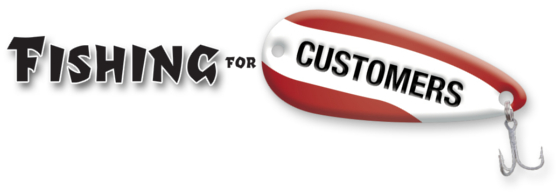We ended Sperry, Hutchinson, and the Hotel, Part I with a promise of Chuck’s personal hotel story, and posed this question: Can you buy customer loyalty?
Let’s start with the hotel story.
I have business in Austin every few months. A couple of years ago I started staying at a hotel on South Interstate 35. It was convenient. The staff was always nice. And they had free, high speed wireless.
Now truthfully, their wireless had issues. At one point I had to explain to the night auditor how to re-initialize the router. But, as I said, the people were nice, and it was close to the places I needed to be.
As I checked out at the end of my third stay, the desk clerk handed me a punch card with three of twelve punches already marked for the three nights I’d been a guest this trip. He told me they were implementing a new loyalty program, and explained that after twelve paid nights, the thirteenth was free.
Remember, the card was not a factor when I decided to stay. I was satisfied with my previous visits, and would have chosen this hotel again anyway.
But, there is something powerful about the word “free.”
I kept the card.
Last month at the conclusion of another Austin trip, the manager on duty ran my Visa, printed the receipt, and informed me that since I’d booked this stay on-line they couldn’t punch my card.
I swear, until that very moment, the card had been of minor consequence, but she was taking away my punches. I got indignant. I informed her that I had booked online every time I stayed at her hotel. I wondered why this had never been an issue in the proceeding three years.
She told me it was “policy.”
I understand that I’m being petty. I know this is an emotional reaction, rather than a logical one. But truthfully, I feel that I’ve been wronged. And much as I’d like to think I’m above making purely emotional decisions, until I get an apology (and my three punches), there’s an excellent chance that I’ll be looking for a new hotel for my next trip to Austin.
Loyalty program? I had chosen the hotel before they even started their loyalty program. I made the choice without any additional incentives.
Hotel incentives are common. They range from free continental breakfast to refrigerators in the room. And once those incentives have been offered, they become part of the negotiation. They were what the hotel was willing to do offer in order to get your business, and what you can expect them to deliver when you accept their offer.
Consider a couple of this hotel’s competitors.
Motel 6 offers a clean, comfortable room, with free color TV and free local calls.
AmeriSuites promises that every room will be a suite. They commit to a microwave and refrigerator in each room, high speed Internet access, free hot breakfast, and available meeting rooms.
If you accept the Motel 6 offer, you won’t expect a microwave and refrigerator, or high speed Internet, or hot breakfast. You won’t even expect to find a hair dryer or clock radio. Will this disappoint you? Probably not. Motel 6 never promised these amenities.
But since they did promise television and telephone, you may justifiably feel that you didn’t receive all you had been promised if you check in and don’t find them. (Translation: “I have been cheated.”)
Remember in Sperry, Hutchinson, and the Hotel, Part I we noted that since all major airlines now offer frequent flyer miles, and since none of those airlines dares to eliminate their frequent flyer program, they’ve effectively become trapped into a “keeping up with the Joneses” marketing program that doesn’t promote loyalty.
Frequent flyer programs not only don’t lead to additional future sales, they don’t even induce additional current sales.
Do any loyalty programs work?
Perhaps. How should we define “loyalty?” By the time we’ve eliminated sentiment and devotion to family or sovereign, the dictionary leaves us with “faithfulness to commitments or obligations.”
Humm. Is a customer ever obligated to do business with us? Perhaps loyalty is the wrong term.
The original loyalty programs did what they should have. They rewarded the company’s best customers for continuing to do business with the company.
Sperry and Hutchinson’s Green Stamps rewarded cash payments. The bigger the payment, the bigger the reward. Frequent flyer programs originally rewarded the airline’s most profitable business travelers for flying that particular airline.
But as soon as programs like these become commonplace, they no longer differentiate your business. They no longer attract your most profitable customers. Instead, they allow your least profitable customers to sell out your least profitible services. They become just another cost of doing business. And make no mistake; loyalty programs cost a lot to maintain.
The hotel in my story discovered their loyalty program killed profitability when it was combined with other offers (in this case, on-line discounts). They solved for their poor planning by refusing to honor the agreement. I promise, this will cost them more than one free room night somewhere down the line. I can’t be the only person who books online.
If we don’t call it a loyalty program, can we still keep our best customers choosing to do business with us?
Yes, we can. Some are complicated and require committments to technology. Some are amazingly simple and you should be doing them anyway.
We’ll examine those solutions in the final installment of Sperry, Hutchinson, and the Hotel.
